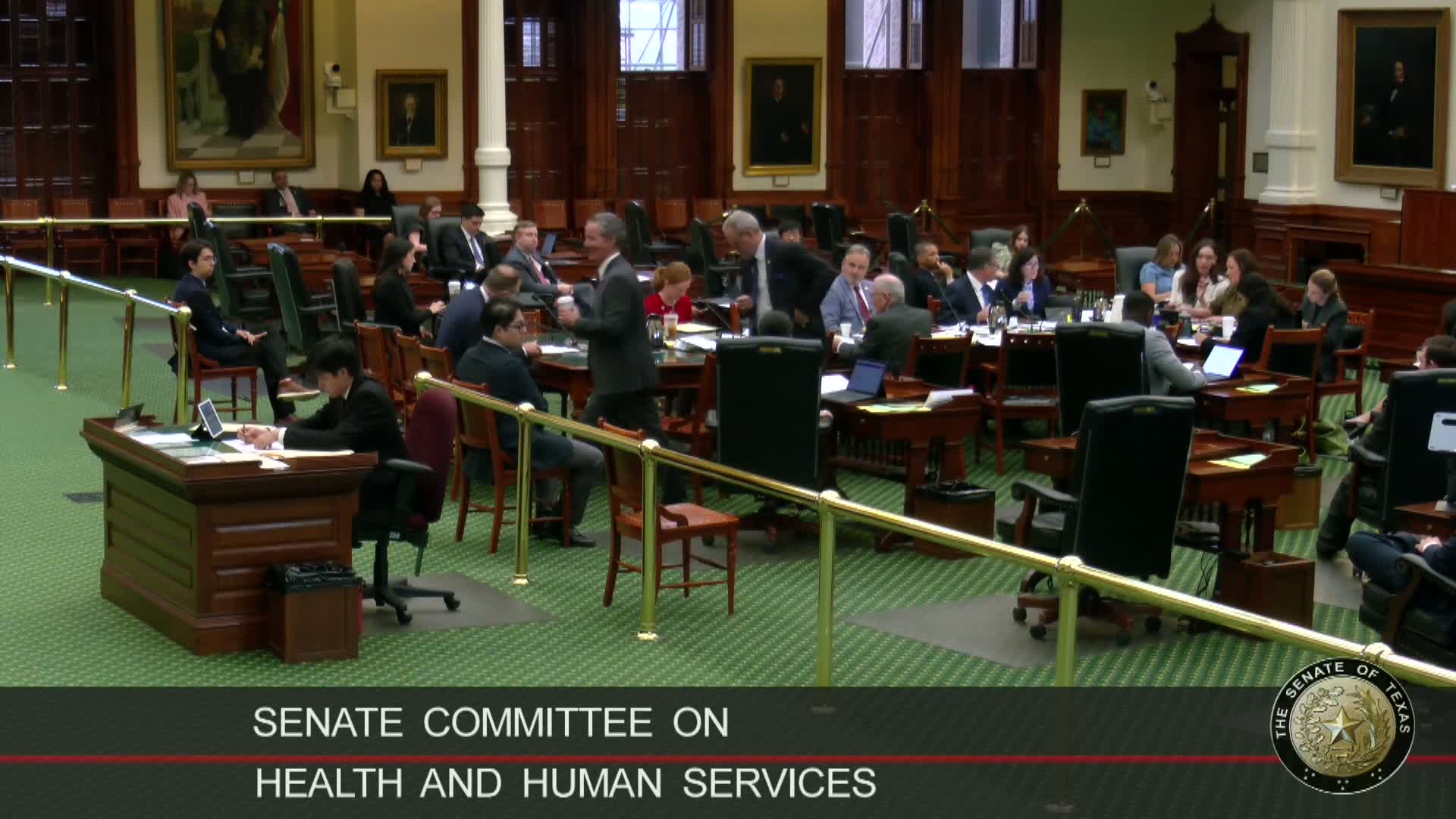Article not found
This article is no longer available. But don't worry—we've gathered other articles that discuss the same topic.
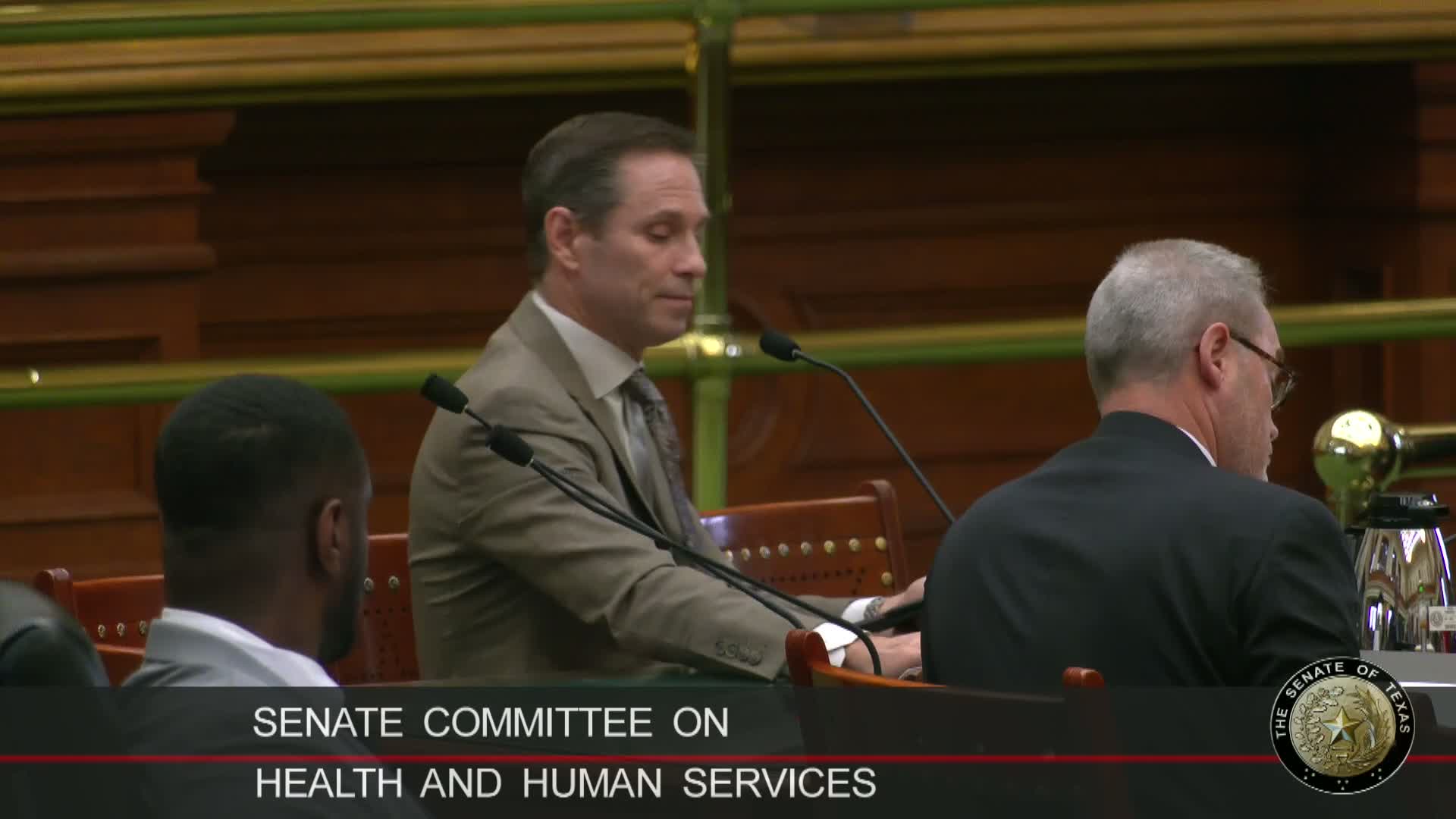
Bill would require in-person physical exam within 24 hours of psychiatric inpatient admission; hospitals and providers raise practical concerns
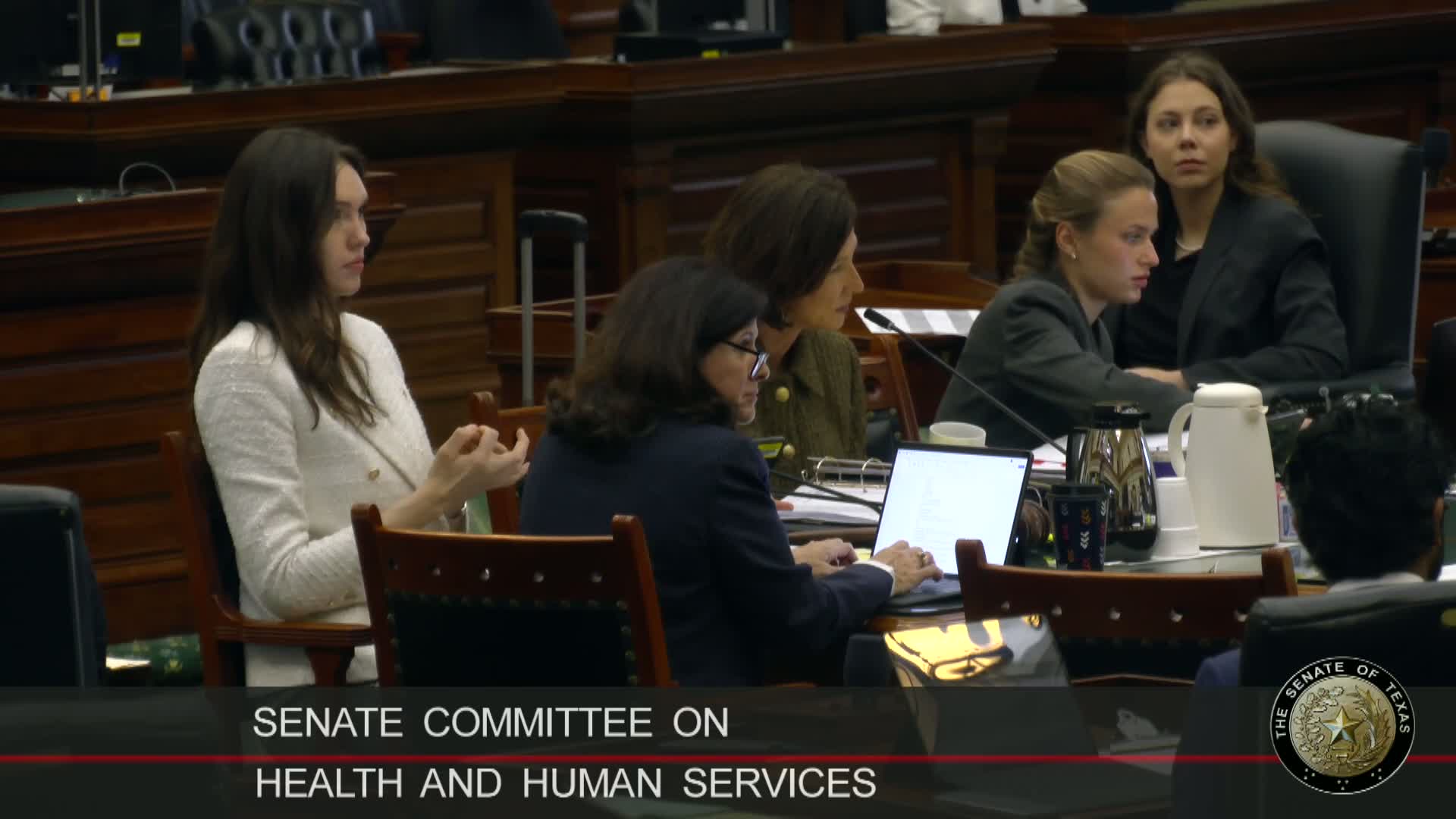
Committee hears bill to extend state parity protections to ERS and TRS plans

Bill would reduce annual abuse-detection training hours for continuing staff at inpatient facilities
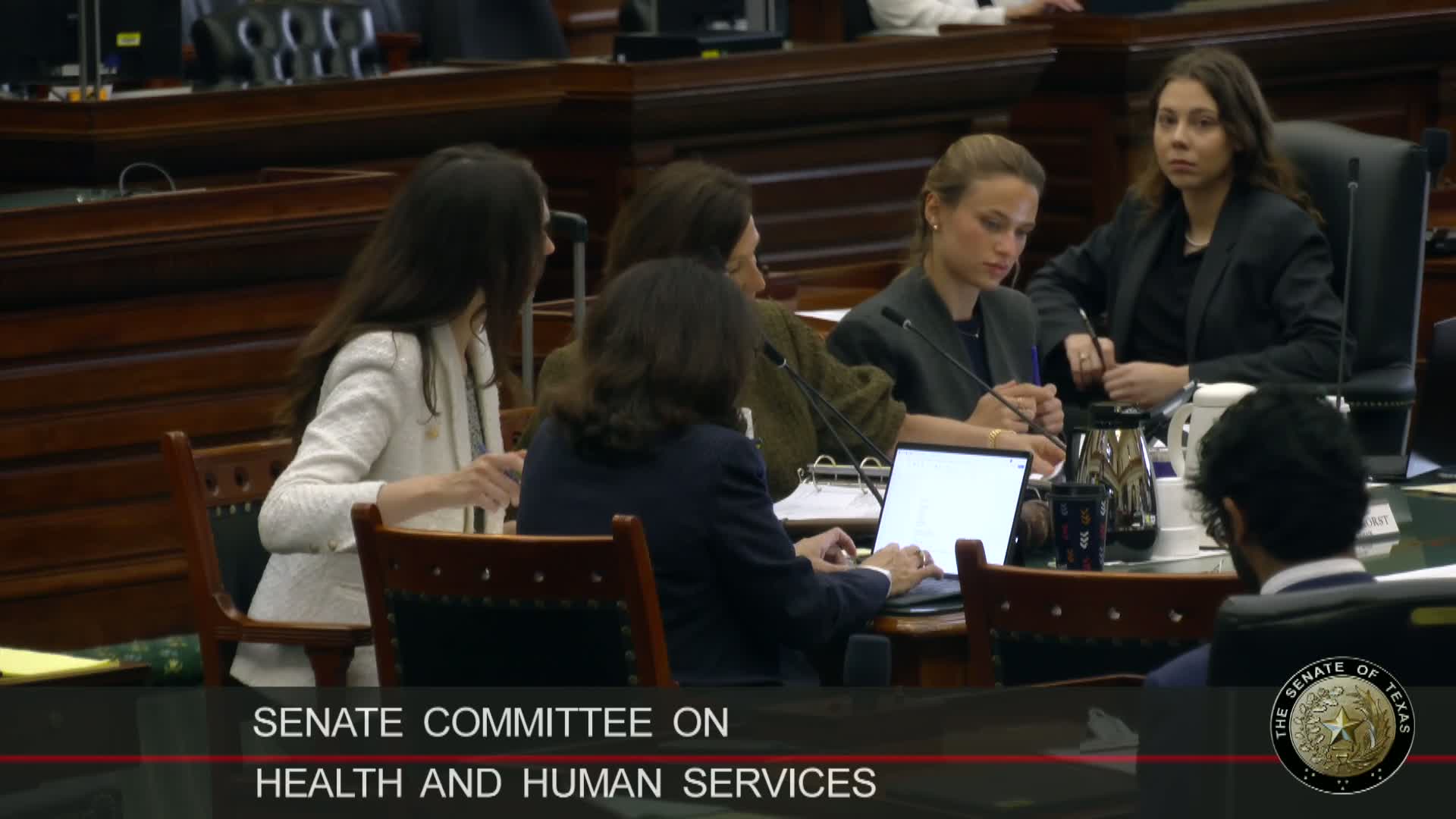
Senate bill would change penalty criteria for chemical-dependency treatment facilities to avoid closures, sponsor says

Committee hears cleanup bill to modernize podiatry licensing under TDLR
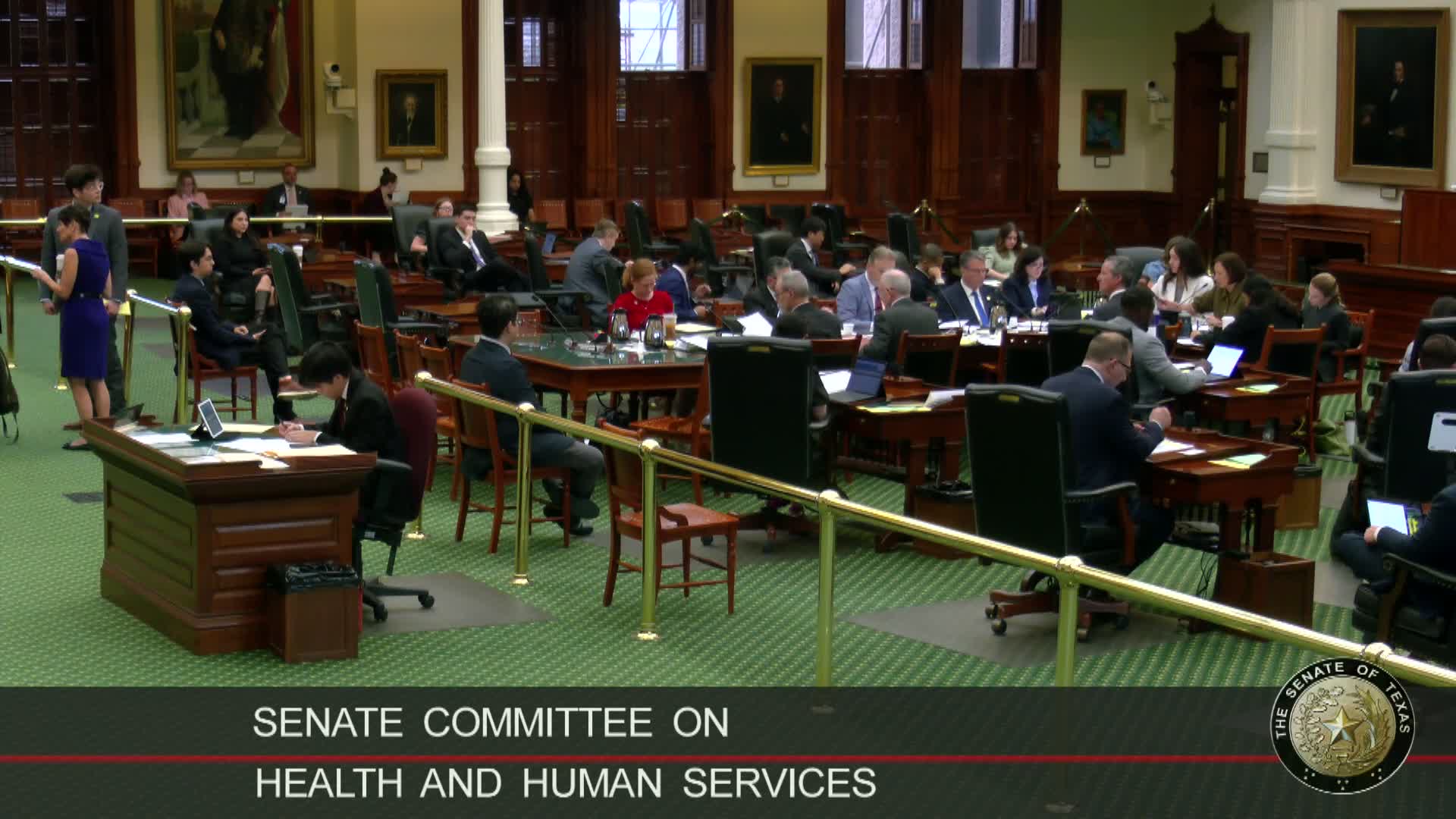
Committee reports multiple health & human services bills; roll-call results and committee actions
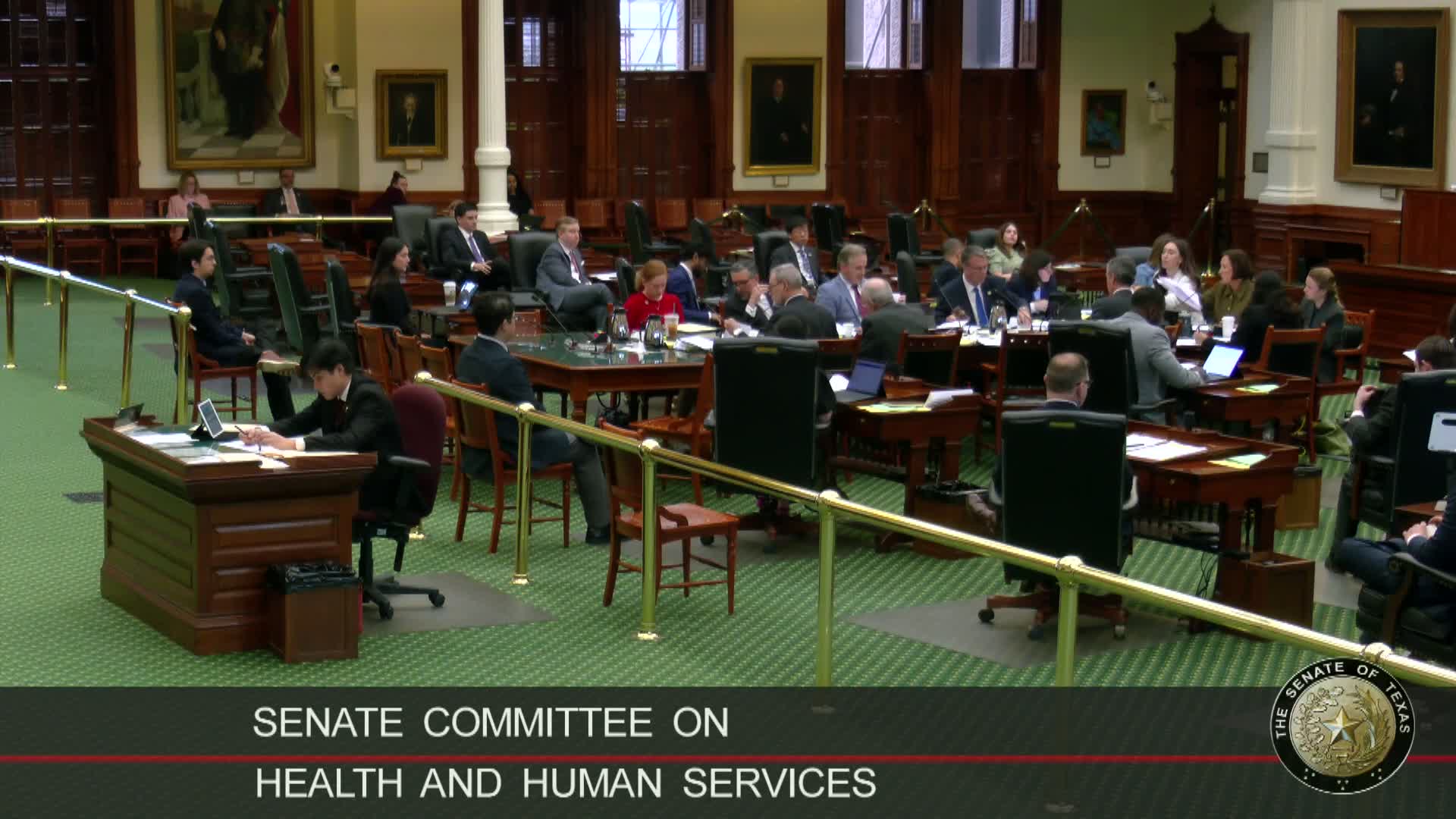
Committee adopts substitute to streamline community‑based care reporting but members flagged judge-discretion concerns

Sponsor touts shared‑savings shopping program for health care; insurers warn of unintended incentives
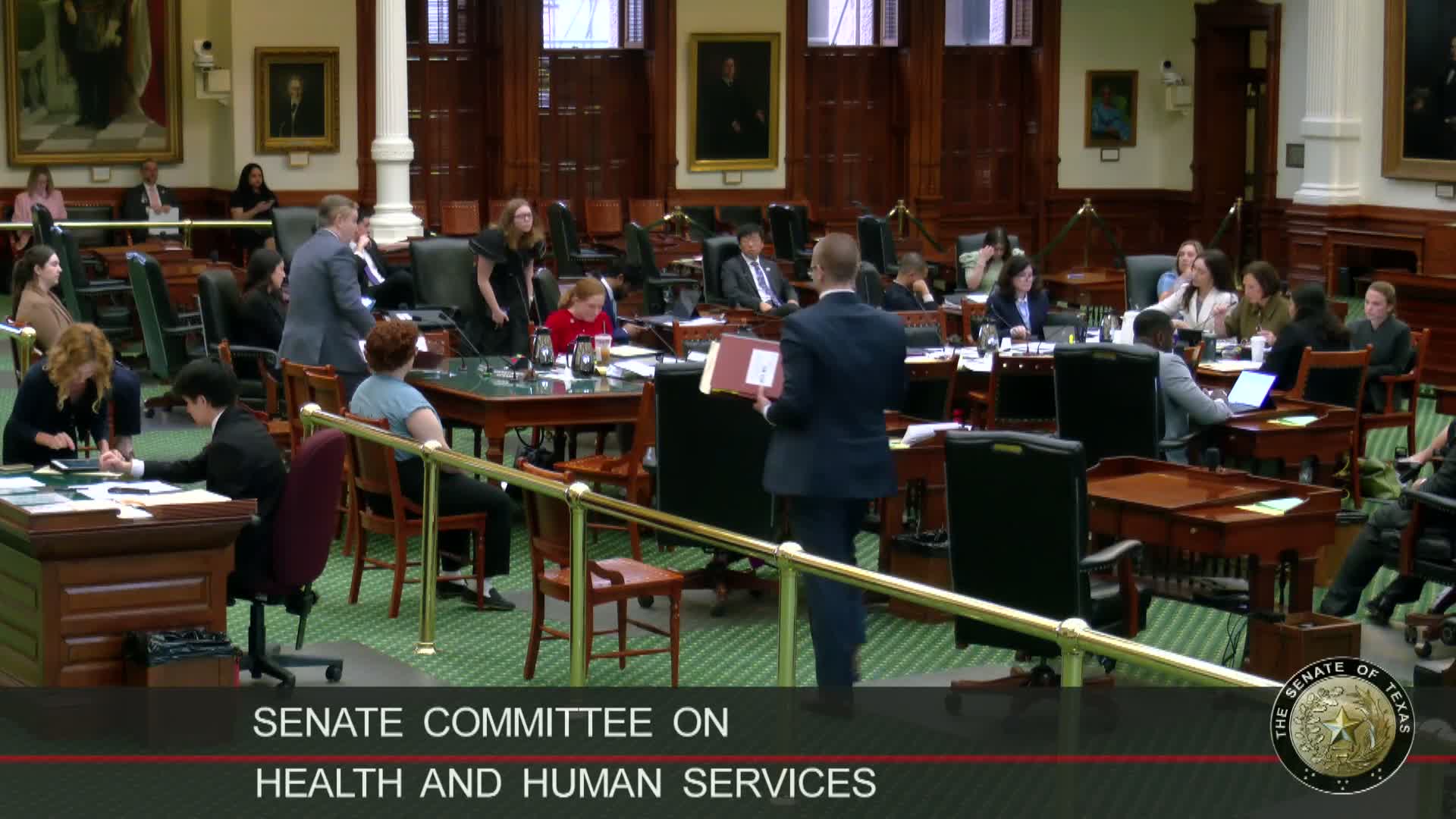
Senate bill would add Duchenne muscular dystrophy to Texas newborn screening, sponsors and families say
